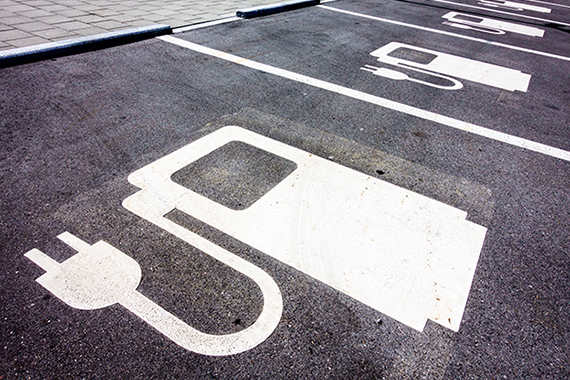
The Electric Vehicle, A First Tipping Point Is Reached
By Jean-Pierre Racine, analyst at Economic Intelligence Branch of CED
Renewable energy and transportation electrification continue to gain momentum, despite the pandemic. In North America, as the electric vehicle becomes more prevalent, automakers will need to develop North American supply chains for electric vehicle parts and components. Quebec is very well positioned to take advantage of this.
Last June, the President of the World Energy Council, Jean-Marc Dauger, stated that peak oil had been reached. More recently, the International Energy Agency observed that renewable energies would account for 80% of the growth in energy capacity over the next decade. Last September, British Petroleum announced that it would cut its oil production by 40 percent and invest heavily in renewable energy. In 2019, E&B Data reported, in his July 9, 2020 newsletter, that the balance of power between oil and the electric vehicle was shifting, with 40% of total automotive investment worldwide going to the electric vehicle. Also, the U.S. venture capital research firm Pitchbook recently stated that the all-electric vehicle is poised to overtake the combustion vehicle in terms of investment and market capitalization in the United States. These findings demonstrate beyond a doubt that the tipping point has been reached in terms of investments in the electric vehicle.
Finally, Québec already has a complete line of products for the development and manufacture of niche specialty vehicles such as motor coaches (Volvo Nova Bus), buses (Girardin and Lion électrique), trucks (Paccar and Lion électrique) and emergency vehicles (Ambulances Demers-Braun). Electrification is already well advanced for some of these specialized vehicles and demand could be greatly boosted by public procurement policies requiring the purchase of electric vehicles with a view to combating GHGs.
More investments for electric vehicles
Last June, the President of the World Energy Council, Jean-Marc Dauger, stated that peak oil had been reached. More recently, the International Energy Agency observed that renewable energies would account for 80% of the growth in energy capacity over the next decade. Last September, British Petroleum announced that it would cut its oil production by 40 percent and invest heavily in renewable energy. In 2019, E&B Data reported, in his July 9, 2020 newsletter, that the balance of power between oil and the electric vehicle was shifting, with 40% of total automotive investment worldwide going to the electric vehicle. Also, the U.S. venture capital research firm Pitchbook recently stated that the all-electric vehicle is poised to overtake the combustion vehicle in terms of investment and market capitalization in the United States. These findings demonstrate beyond a doubt that the tipping point has been reached in terms of investments in the electric vehicle.American plants oriented towards electric vehicle manufacturing
The highlight of the year 2020 in the North American automotive industry is the conversion of plants in Ontario, Michigan and Tennessee to the manufacture of fully electric vehicles (GMC's "Factory Zero"). In the wake of this shift, manufacturers such as Ford and GMC will need to set up supply chains for electric vehicle parts and components. With the new United States-Mexico-Canada Agreement requiring 75% North American content, it appears that the new electric vehicle supply chains will be largely North American. Since Québec has an advantage over the rest of the continent for certain elements related to electrification, major opportunities are therefore emerging for Québec. Compared to the combustion vehicle, the electric vehicle has higher needs in lithium, cobalt, graphite, nickel (+ 140 kg per vehicle), aluminum (+ 72 kg per vehicle) and copper (+ 41 kg), resources present in Quebec. Opportunities are particularly attractive for the manufacture of lithium batteries and its components, light materials and engines (e.g. Dana TM4). Québec is also well positioned in the development, manufacturing and marketing of equipment related to electric vehicles such as charging stations (e.g.: Addénergie and its Shawinigan plant).Quebec’s challenge: become part of the supply chains
SMEs could adjust their production to take advantage of opportunities and become part of electric vehicle supply chains such as VERBOM, in Valcourt, in the Eastern Townships. This company has modified and modernized its production lines to enable it to produce aluminum foil for Tesla's electric vehicles (Model X).Finally, Québec already has a complete line of products for the development and manufacture of niche specialty vehicles such as motor coaches (Volvo Nova Bus), buses (Girardin and Lion électrique), trucks (Paccar and Lion électrique) and emergency vehicles (Ambulances Demers-Braun). Electrification is already well advanced for some of these specialized vehicles and demand could be greatly boosted by public procurement policies requiring the purchase of electric vehicles with a view to combating GHGs.